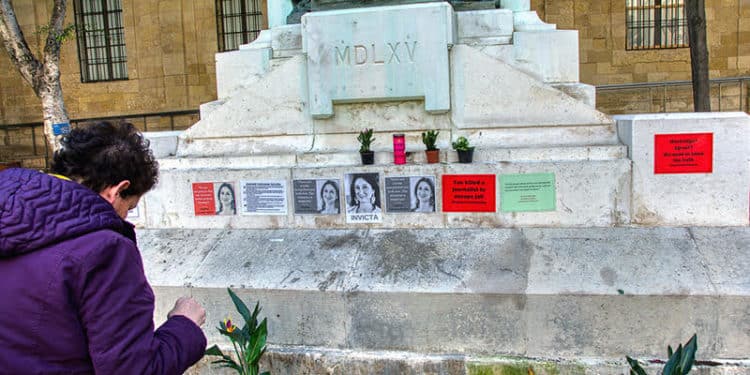On October 21, Daphne Caruana Galizia, a Maltese journalist who exposed widespread corruption in the Maltese government, was named the co-winner of the 2020 Allard Prize for International Integrity. She shares the prestigious award with whistleblower Howard Wilkinson, a former banker who exposed the world’s largest money laundering case. The annual Allard Prize is given to groups or individuals who have “demonstrated exceptional leadership and courage in the protection of human rights, while upholding the Rule of Law, promoting transparency and/or preventing or combating corruption,” according to the prize’s website. Galizia certainly filled these criteria, having faced consistent threats on her life as she refused to stop investigating corruption in the highest levels of the Maltese government. She was assassinated in 2017 by a remote-controlled car bomb, less than a kilometer from her home.
Galizia, a life-long investigative journalist, reported in 2016 that a number of Maltese government officials, including Maltese prime minister Joseph Muscat, had ties to Panamanian shell companies. Muscat later resigned in disgrace. Galizia also uncovered possible corruption inside a government program that sells Maltese citizenship. Her reports shook the political and financial world of Malta and prompted scrutiny of global off-shore banking systems. Throughout her career, Galizia was demonized by the Maltese press, as many of the major news companies were owned by the people she was investigating. She was sued for libel a total of 44 times, and at the time of her murder, her bank accounts had been frozen by the government in an apparent attempt to discourage her ongoing investigation. She unflinchingly faced a pattern of retaliation and character defamation in the last years of her life. However, she never changed the course of her investigation. Her work is being carried on by her son, Andrew Caruana Galizia.
Andrew Galizia, accepting the award on behalf of his mother, weighed the value of prizes such as the Allard Prize. He said that although some people might consider it frivolous to celebrate individuals when there is so much more work to be done to fight corruption, it is essential to remember the people who have made great sacrifices. “We know that there is a connection between remembering, and justice. If we forget the people that were murdered, if we forget the human rights activists, the journalists, the people with integrity who lost their lives fighting for us, for our right to know, for our right to live in a democracy, then no one is going to remember to fight for justice.”




